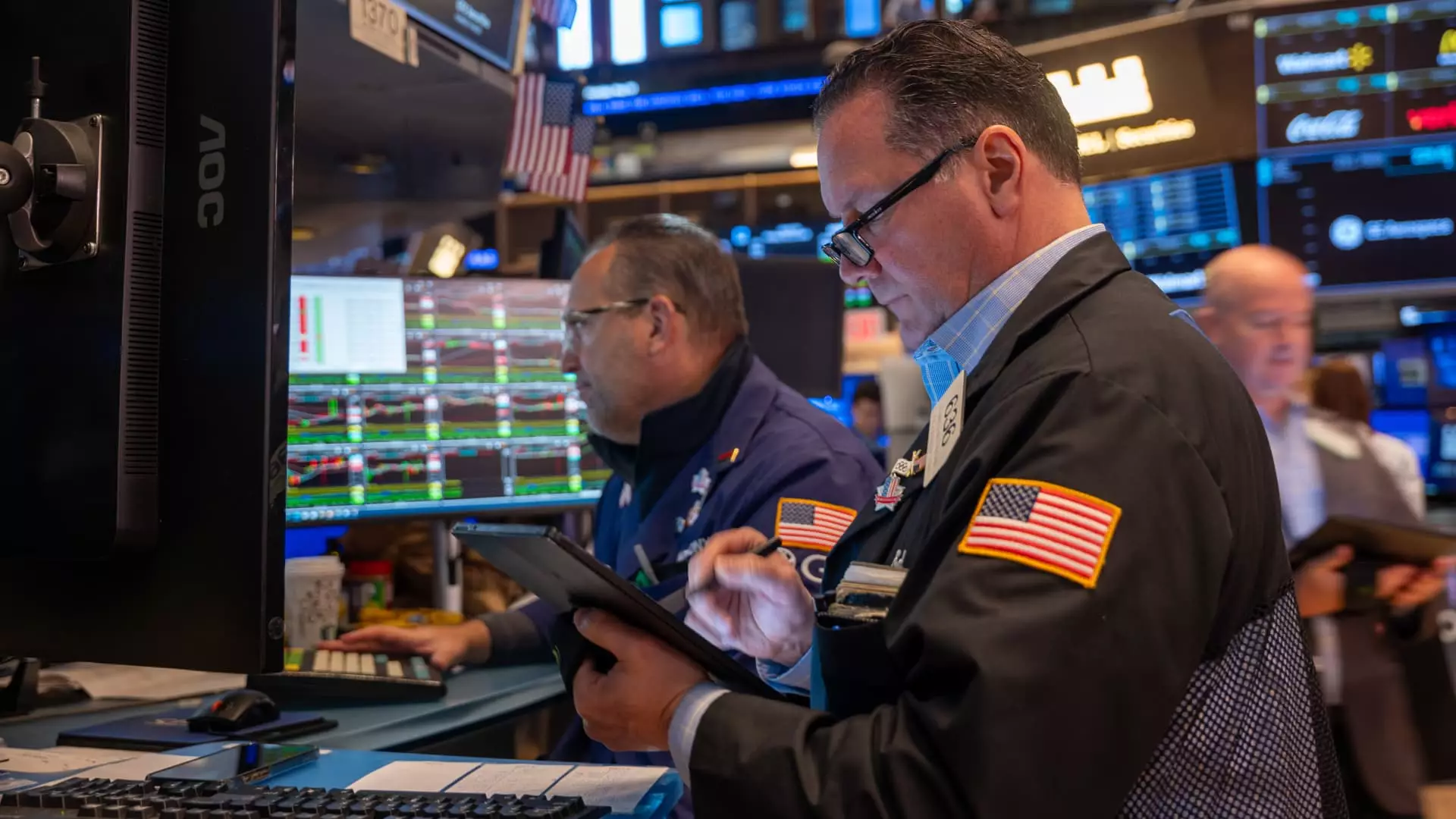In today’s tumultuous economic climate, the stock market faces existential questions fueled by fluctuating trade policies, like the recent tariffs imposed during President Trump’s administration. As financial turbulence prevails, investors are continually on the hunt for stocks that not only endure but also thrive amid adversity. The ongoing global discussion surrounding inflation, rising interest rates, and consumer behavior signifies that businesses aligned with these trends have the greatest potential for survival and success.
The auto parts industry, particularly companies like AutoZone (AZO), offers compelling insights into how specific sectors can capitalize on consumer behavior shifts driven by external economic pressures. Buying power is changing; with a pronounced decrease in discretionary spending, more consumers might opt to prolong the lifespan of their existing vehicles rather than invest in new cars that come with hefty price tags partly attributed to increasing tariffs. This behavioral shift constitutes a robust tailwind for auto parts suppliers.
The Case for AutoZone’s Forward Momentum
AutoZone, a consistent player in the automotive aftermarket, presents a striking narrative: a stock that has not only weathered the storm but has consistently gained value year after year since the pandemic. Recently, Bank of America upgraded AutoZone from ‘hold’ to ‘buy,’ elevating its price target significantly. They project a potential 25% gain in value, a bold statement reflecting the bank’s confidence in AutoZone’s business strategy.
What sets AutoZone apart is its adeptness at marrying resilience with consumer trends. The analyst Robert Ohmes noted that, although rising tariffs may increase costs for imported auto parts, they might simultaneously deter new car buyers. As new car sales dwindle and prices for used vehicles rise, consumers will likely invest in maintaining their current cars, fostering a robust demand for AutoZone’s offerings. This trend not only positions AutoZone as a beneficiary of a shrinking new car market but also amplifies the company’s growth potential in a more expansive aftermarket space.
Dividends and Investors’ Shifting Preferences
In contrast to AutoZone’s optimistic trajectory, the performance of dividend-paying stocks has taken a hit. In a market fundamentally altered by rising yields and economic uncertainty, traditional havens like dividend stocks are less attractive when they can no longer compete effectively with U.S. Treasury yields. Investors seeking stability may think twice before turning to dividend-focused funds, which undermines their expected performance during economic downturns.
This environment serves to highlight AutoZone’s unique position. As traditional safe havens falter, investors find solace in companies that exhibit consistent growth, even in a challenging economy. The contrast underscores a shift in demand away from conventional safe havens toward stocks that exemplify resilience and adaptability—qualities inherent in AutoZone.
Behavioral Shifts Driving the DIY Trend
The DIY movement is also worth examining in this context. Economic stress tends to transform consumer behaviors significantly. Faced with rising costs, a larger segment of the population may turn to auto maintenance as a feasible DIY project instead of relying on costly service centers. This shift is vital for companies like AutoZone, which not only provide parts but also aim to instill confidence in individuals who may previously have shied away from DIY repairs.
As people embrace a more hands-on approach to vehicle maintenance amid financial constraints, AutoZone stands to gain considerable momentum. History has shown that during economic downturns, DIY behaviors increase dramatically, a phenomenon that the company is uniquely positioned to capitalize on.
The Analysts’ Confidence
Wall Street analysts overwhelmingly favor AutoZone, maintaining a striking consensus with 23 buy ratings and no sell calls. Such confidence from market experts reflects a shared belief in the company’s fundamentals and strategic positioning. It is a resounding endorsement that speaks volumes about AutoZone’s capacity to thrive irrespective of cyclical downturns.
This level of analyst optimism underscores the stock’s promise of resilience, one that resonates well in the current economic landscape replete with uncertainties. AutoZone’s ability to leverage changing consumer behaviors and market dynamics places it at the forefront of investment opportunities in an often volatile atmosphere.
The journey of AutoZone illustrates how essential it is to discern which stocks can endure adversities and perform commendably through varying economic conditions. Amid rising tariffs and shifting consumer dynamics, the auto parts retailer is likely to be a cornerstone investment for those seeking durable stocks.

